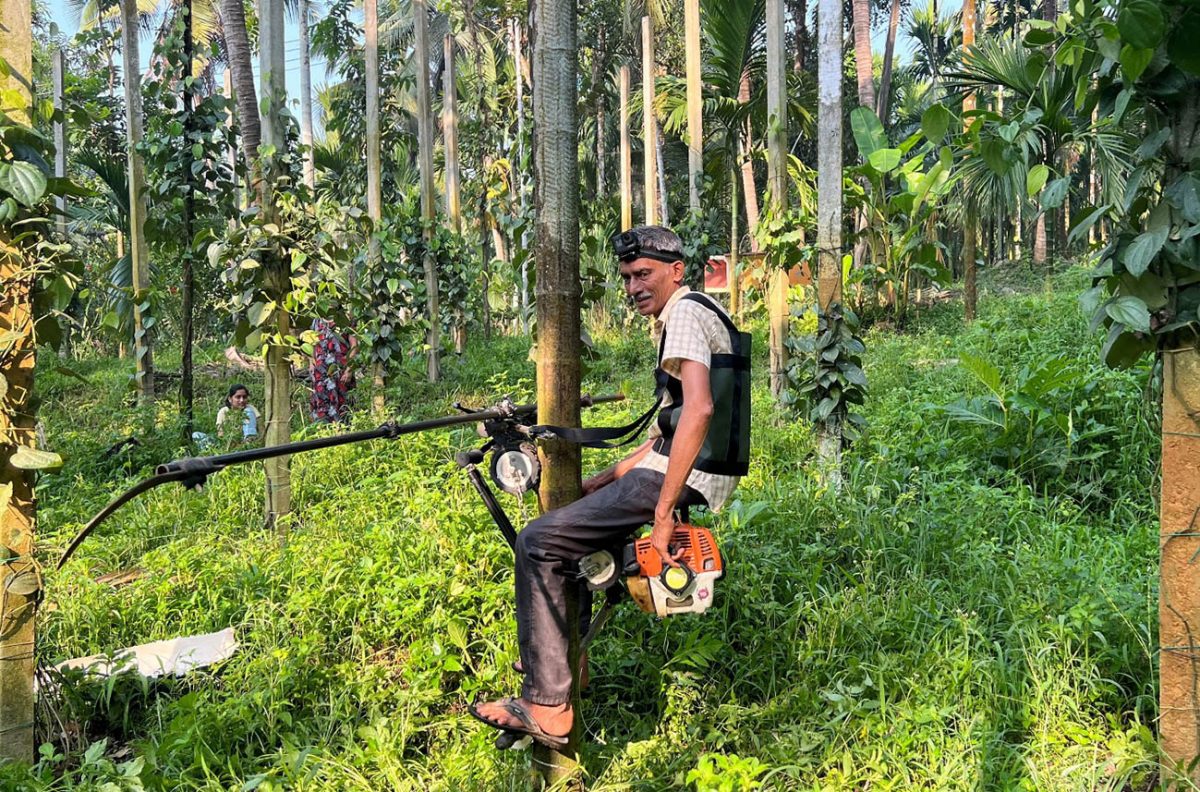MANGALURU, India, (Reuters) – Ganapathi Bhat goes to work most mornings carrying a homemade contraption consisting of a small motor, a rudimentary seat and a set of wheels – all expertly combined to help the farmer in southern India swiftly climb tall trees.
The 50-year-old farms areca nut in the coastal town of Mangaluru in India’s southern Karnataka state and has to regularly scale 60- to 70-foot-tall trees to harvest his crop.
Too old to climb, and unable to find cheap labour, Bhat said he took it upon himself to invent a device that would make his life easier.
Bhat calls it a “tree scooter”.
India is the world’s biggest producer of areca nut, with an output of 1.2 million tonnes in 2020/21. Much of this crop is produced along the southern coastal states of Karnataka and Kerala.
“Villagers asked me if I was mad. They had doubts about my invention… whether it would work in the rainy season because the trees would be slippery,” Bhat told Reuters at his lush 18-acre farm.
Starting in 2014, Bhat said he spent around 4 million Indian rupees ($52,824) into research and development. After four years before, he and his engineer partner had a working prototype.
Bhat says he has sold more than 300 of the “tree scooters”, which cost 62,000 Indian rupees ($819.02) each.
On a recent morning, Bhat strapped on a seat-belt, which is hooked to the handle of this contraption. He then revved up the scooter, zooming up a areca nut tree. High above the ground, Bhat quickly inspected the crop before descending at top speed.
“I feel proud that I did something for the people through this invention,” Bhat said. “I feel that my life is complete now.”

